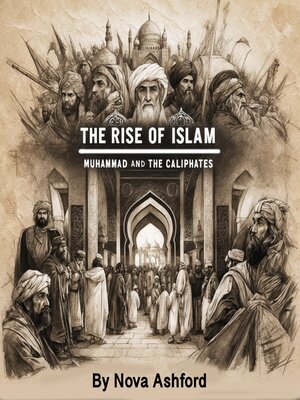
Sign up to save your library
With an OverDrive account, you can save your favorite libraries for at-a-glance information about availability. Find out more about OverDrive accounts.
Find this title in Libby, the library reading app by OverDrive.



Search for a digital library with this title
Title found at these libraries:
| Library Name | Distance |
|---|---|
| Loading... |
This audiobook is narrated by a digital voice.
Before the advent of Islam, the Arabian Peninsula was home to a diverse and complex society. Its population consisted of a wide variety of tribes, each with distinct customs, languages, and beliefs. The region's geography played a significant role in shaping its culture and politics. The desert environment was harsh, and the nomadic Bedouins who inhabited it relied on their ability to adapt and survive in such an unforgiving landscape. Their culture was largely centered on tribalism, with each tribe functioning as an independent social and political unit. Loyalty to one's tribe was paramount, and conflicts between tribes were common.
The Arabian Peninsula was also a crossroads for trade between the east and west, connecting the Byzantine Empire, the Sassanian Empire, and the growing civilizations of India and Africa. This made it an important center for commerce, and several major trading cities, most notably Mecca and Yathrib (later known as Medina), flourished. Mecca, in particular, was a significant religious and commercial hub, with the Kaaba, a pre-Islamic shrine, serving as a focal point for various Arabian tribes' pilgrimage practices.
Religion in pre-Islamic Arabia was polytheistic, and many Arabs believed in a variety of gods and spirits, each associated with different aspects of nature and life. These gods were often represented by idols, and religious rituals were an integral part of daily life. However, there were also pockets of monotheism, including Jewish and Christian communities, particularly in the more urbanized areas of the peninsula. These monotheistic beliefs, along with the philosophical ideas emerging from the Byzantine and Sassanian empires, set the stage for the radical religious transformation that would follow with the rise of Islam.







